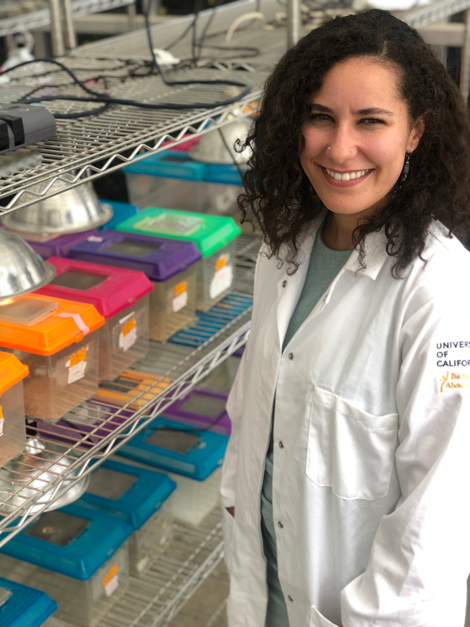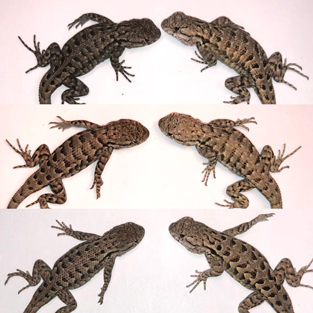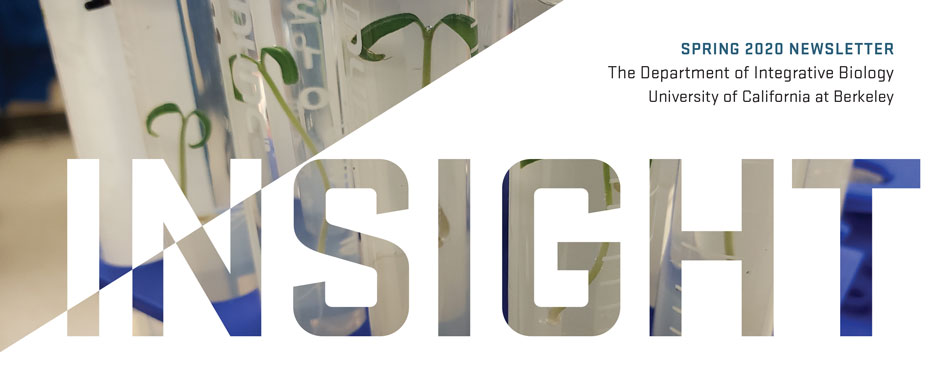 |
Sima Bouzid: Department of Integrative Biology BA 2013 |
By Kirsten Mickelwait
For Nassima “Sima” Bouzid, it’s been a long and winding path from being an undergrad in UC Berkeley’s Department of Integrative Biology to her current position as a data scientist at Invitae, a San Francisco-based company that makes genetic information more affordable and accessible through physicians. But throughout her journey, the questions have circled around similar themes: What’s behind how organisms look and act? How do their genetics and environments interact to produce these results? Just as she studied how a lizard’s color is related to its evolutionary history and environment for her doctoral thesis, she’s now exploring how human disease is a combination of one’s environment and genetic background.
When Bouzid began at UC Berkeley, she had no clear idea of what field she wanted to pursue. She’d always been fascinated by the natural world, exploring organisms she could observe. Then she was hired — first as a prep lab assistant and then as a curatorial assistant — at the Museum of Vertebrate Zoology. As she helped manage the database of more than 250,000 records of amphibians and reptiles, she became fascinated with the genetic and environmental questions raised and wondered what training she would need to help solve those problems.
Bouzid completed her BA, was awarded a research fellowship from the National Science Foundation, and pursued her PhD at the University of Washington. Then, with doctorate in hand, she spent the summer as a fellow at Insight Data Science, which brought her back to the Bay Area and gave her the mentorship she needed to continue that career path. The experience “taught me the difference between being a scientist in academia and one in industry — there’s a whole different language used to communicate what you’re doing,” she says. “At Invitae, there’s a lot of cross-talk with software engineering, machine learning, and product and sales people. I feel like I’m getting a sampler platter of the healthcare field in the business and tech space.” Eventually, she thinks she might like to get her MBA and transition to the business side.
 |
Three pairs of Western Fence Lizard siblings, raised in different lab treatments as part of Sima’s PhD research. |
Unlike direct-to-consumer genetic companies, Invitae takes a more clinician-centered approach. It focuses on understanding uncommon variants — what’s behind a particular gene mutation, for example. A highpoint of her work, Bouzid says, is her interaction with genetic counselors and the product team to determine what approach will best serve doctors and patients. “One of my goals is to make this process scalable,” she says, “so more people can have the support needed to understand their genetic testing results and make more informed choices about their healthcare.”
The hardest part of transitioning into industry from an academic environment, she says, is the daily challenge of doing work you haven’t done before. “When I hit a road-block, I dissect it, find the edge of my knowledge, then reach out to someone,” she explains. “That’s something that would have been terrifying to me as an undergrad.” Her doctoral work helped to advance her creative problem-solving skills and to deal with loosely defined problems. “Now I’ve lost the fear of not knowing something,” she says.
Bouzid’s advice for students hoping to pursue a similar path: to gain quantitative experience — particularly coding — to take advantage of this quickly emerging field. She remembers how overwhelmed she felt as an undergrad, not yet understanding how to process so much new knowledge. “Now I can learn things so much more quickly,” she says. “I didn’t realize there were positions where you could continue to absorb so much. In my role as a data scientist, I’m constantly learning about new things. I couldn’t ask for more in a job.”
Back to Main Spring 2020 Newsletter Page







